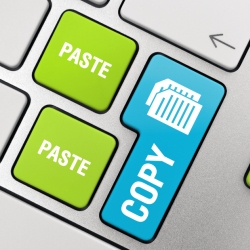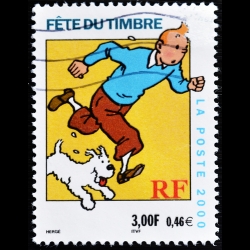 The temptation to lift someone else’s work from the internet can be overwhelming when struggling to meet a deadline, but the risk is simply not worth it, says Charlotte Hudson
The temptation to lift someone else’s work from the internet can be overwhelming when struggling to meet a deadline, but the risk is simply not worth it, says Charlotte Hudson
Plagiarism is a serious academic offence, and one that has been around for centuries. Shakespeare allegedly stole most of his historical plots from Holinshed, and Oscar Wilde too, was repeatedly accused of plagiarism.
Educational institutions are clamping down on the act of plagiarism – passing off someone else’s work as your own. Academic staff are more commonly using a variety of online resources, such as anti-plagiarism software, to check the content of all submitted work.
GMC advice
The GMC has specific advice on this issue in Medical Students: Professional Values and Fitness to Practise. It states that in order to demonstrate that they are fit to practise, students must:
- Be honest, genuine and original in their academic work, including when conducting research, and take effective action if they have concerns about the honesty of others
- Be honest and trustworthy when writing reports and logbooks, and when completing and signing forms
- Be honest in CVs and all applications and not misrepresent their qualifications, position or abilities
- Not plagiarise others’ work or use their own work repeatedly in a way that could mislead
ePortfolios, essays and CVs
It is not just essays that medical students/junior doctors need to worry about; CVs and job applications are also checked for plagiarism. On the internet an array of websites now exist offering students custom-made personal statements and essays, for quite a hefty fee. These sites promise that they are 100% plagiarism-free, but last year nearly 30,000 university applicants sent in personal statements that Ucas’ “similarity-detection service” flagged up as copied (source: TES Newspaper).
Even the personalised essays, which are guaranteed to be unique, come with a number of risks. By presenting someone else’s work as your own it is likely that you would be in breach of any plagiarism policy at any university. And there is also the chance that your tutor, who is probably clued up on your writing style, will spot the signs that your essay hasn’t been written by you. Other areas where foundation doctors may find themselves in difficulty with plagiarism include ePortfolios, CVs and postgraduate academic work.
An article on Medscape News Today says that the reason students are asked to write essays is because this is most likely to demonstrate their ability to analyse and communicate complex material: “All of these are essential skills for the budding clinician or medical academic. Therefore, you need to show you can perform these tasks, and a gift for navigating the net and a facility for copying and pasting, is not the solution even if it a useful means to that end.”
Probity
Furthermore, the GMC takes the global issue of probity very seriously, and an allegation of plagiarism would undoubtedly raise questions about your probity.
Probity means being honest and trustworthy, and acting with integrity. Your actions as a medical professional should be ethical and should uphold the reputation of the profession, helping to maintain public confidence in it.
Never pass off anyone else’s work as your own. If you do use other people’s work, for reference purposes ensure that it is properly attributed and identify any direct quotes appropriately using quotation marks. Ensure that you are familiar with local policies and guidelines in relation to referencing academic work. If in doubt, don’t be afraid to ask for help – it could be your future career that you are jeopardising.
The message in this article is: do not risk your professional reputation and career by “copy and pasting” your way to the top. There are a lot of pressures and temptations in modern life that may tempt you to cheat and take the easy route – but in truth, the only person you are cheating is yourself.
Case study
Mary was in her F2 year and the deadline was looming for her application for a specialty post.
She began to panic, but then remembered that her house mate Dave had applied the previous year, and he had given her a copy of his form at the time. By coincidence Mary wanted to apply for the same specialty, and Dave got his first choice last year.
Worried about running out of time and not contemplating the consequences, Mary used Dave’s application form and got it in before the submission deadline.
While waiting to hear whether or not she had been shortlisted, she was contacted by her educational supervisor who presented her with a copy of her application, and Dave’s from the previous year – Mary was accused of plagiarism.
Most colleges and deaneries use anti-plagiarism software to catch out doctors who try to pass off others’ work as their own.
Outcome
Realising the seriousness of the situation, she withdrew her application and successfully reapplied the following year.
Mary put her career on the line just to save a little time – was it worth it?
Read more about plagiarism in an article by Dr Jayne Molodynski, Whose work is it anyway? – www.medicalprotection.org/uk/new-doctor/june-2011/whose-work-is-it-anyway



